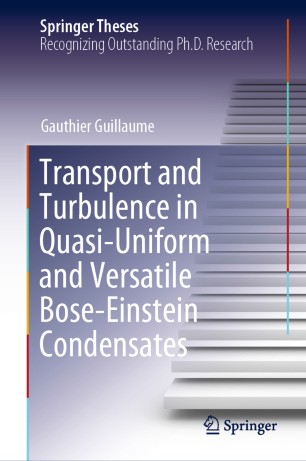

Most ebook files are in PDF format, so you can easily read them using various software such as Foxit Reader or directly on the Google Chrome browser.
Some ebook files are released by publishers in other formats such as .awz, .mobi, .epub, .fb2, etc. You may need to install specific software to read these formats on mobile/PC, such as Calibre.
Please read the tutorial at this link: https://ebookbell.com/faq
We offer FREE conversion to the popular formats you request; however, this may take some time. Therefore, right after payment, please email us, and we will try to provide the service as quickly as possible.
For some exceptional file formats or broken links (if any), please refrain from opening any disputes. Instead, email us first, and we will try to assist within a maximum of 6 hours.
EbookBell Team

4.3
58 reviewsAdvancing the experimental study of superfluids relies on increasingly sophisticated techniques. We develop and demonstrate the loading of Bose-Einstein condensates (BECs) into nearly arbitrary trapping potentials, with a resolution improved by a factor of seven when compared to reported systems. These advanced control techniques have since been adopted by several cold atoms labs around the world.
How this BEC system was used to study 2D superfluid dynamics is described. In particular, negative temperature vortex states in a two-dimensional quantum fluid were observed. These states were first predicted by Lars Onsager 70 years ago and have significance to 2D turbulence in quantum and classical fluids, long-range interacting systems, and defect dynamics in high-energy physics. These experiments have established dilute-gas BECs as the prototypical system for the experimental study of point vortices and their nonequilibrium dynamics.
We also developed a new approach to superfluid circuitry based on classical acoustic circuits, demonstrating its conceptual and quantitative superiority over previous lumped-element models. This has established foundational principles of superfluid circuitry that will impact the design of future transport experiments and new generation quantum devices, such as atomtronics circuits and superfluid sensors.